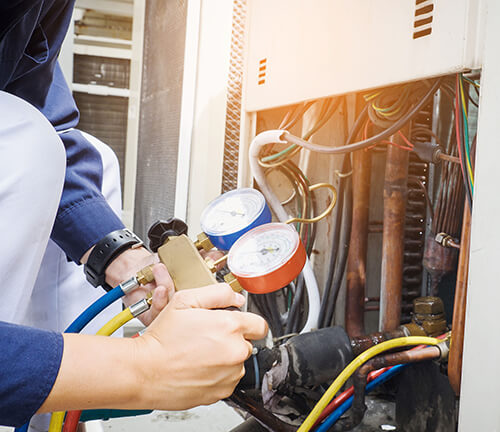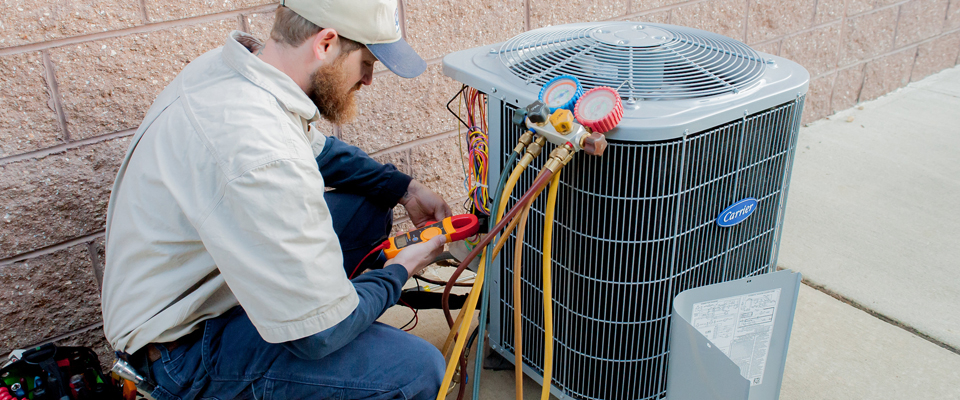Energy-Efficient A/c Solutions to Minimize Energy Expenses
As energy costs continue to rise, the value of energy-efficient Heating and cooling systems becomes progressively evident. These systems not only promise considerable financial savings on energy bills but also contribute to a much more lasting future by minimizing power consumption.
Benefits of Energy-Efficient HVAC Equipments
Energy-efficient a/c systems supply many advantages that expand past mere expense savings. One substantial advantage is the reduced ecological influence. By taking in much less power, these systems add to reduce greenhouse gas emissions, helping to deal with climate change and advertise sustainability. This straightens with boosting social needs for eco-friendly techniques in domestic and business settings.
Additionally, energy-efficient HVAC systems usually supply enhanced comfort levels. A number of these systems feature advanced modern technology that enables far better temperature control and improved air high quality (DMAKS HVAC). This causes a much healthier interior atmosphere, which is especially crucial for people with allergic reactions or respiratory system concerns
Additionally, purchasing energy-efficient heating and cooling systems can enhance residential property worth. As more consumers focus on power effectiveness, homes and structures equipped with these systems may bring in greater quotes in the real estate market.
Kinds Of Energy-Efficient A/c Options
Exactly how can property owners and companies select one of the most ideal energy-efficient cooling and heating alternatives for their requirements? The market offers a variety of energy-efficient HVAC systems, each designed to improve convenience while decreasing power usage.
One option is the variable cooling agent flow (VRF) system, which effectively manages the temperature in several zones within a structure. This system adapts its refrigerant circulation to match the desired temperature level, resulting in considerable power savings.
One more popular option is geothermal heatpump, which make use of the earth's secure temperature to warmth and trendy rooms. By transferring heat to and from the ground, these systems show remarkable performance, especially in modest climates.
Furthermore, ductless mini-split systems provide an energy-efficient alternative for homes doing not have ductwork. These systems allow for zone-specific cooling and heating, decreasing power waste in vacant locations.
Lastly, high-efficiency heaters and air conditioners, with innovative SEER and AFUE ratings, use dependable environment control while eating much less energy than typical models. By assessing these alternatives, homeowners and organizations can select a cooling and heating system customized to their specific demands and energy effectiveness objectives.
Trick Features to Think About

Next, explore the type of compressor made use of in the system. DMAKS HVAC. Variable-speed compressors can change their output to match the home heating or cooling need, resulting in boosted comfort and power cost savings contrasted to single-speed designs. In addition, search for systems equipped with wise thermostats that supply programmable settings and remote gain access to, enabling for far better control over energy usage
One more essential feature is the system's air filtration capability. High-efficiency filters can improve indoor air top quality and reduce power intake by ensuring the system operates successfully. Moreover, take into consideration the kind of cooling agent made use of; modern-day systems usually employ environmentally friendly refrigerants that have a lower ecological effect.
Lastly, make sure that the system is compatible with zoning technology, which permits tailored temperature control in different areas of your home, boosting you could try here comfort while minimizing power usage.
Tips for Picking the Right System


Following, consider energy performance additional resources rankings, specifically the Seasonal Energy Efficiency Proportion (SEER) for cooling down systems and the Yearly Gas Use Effectiveness (AFUE) for heating systems. Greater scores show higher efficiency, which can lead to substantial cost savings on energy expenses in time.
In addition, examine the sort of HVAC system that best suits your lifestyle and spending plan. Options consist of central air conditioning, ductless mini-splits, and heat pumps, each with its very own set of benefits and disadvantages.
Do not ignore the significance of correct installation and sizing; an inaccurately sized system can cause inefficiencies and boosted wear. Consult with a professional HVAC specialist to get professional referrals customized to your home's distinct requirements. This detailed strategy will guarantee that you pick an energy-efficient cooling and heating system that satisfies your demands and budget efficiently.
Upkeep for Optimum Effectiveness
Once the best a/c system remains in area, ongoing upkeep becomes essential to making sure ideal performance and long life. A properly maintained system operates much more efficiently, leading to reduced power usage and lowered utility expenses. Regular assessments and tune-ups should be scheduled a minimum of twice a year-- once before the cooling period and when before the heating season.

Home owners ought to also be cautious about checking their cooling and heating system's performance. Uncommon sounds, rising and fall temperature levels, or boosted energy costs can show underlying issues that need prompt attention. By addressing these concerns immediately, property owners can protect against pricey repair services and extend the life-span of their systems.
Investing in a maintenance strategy with a qualified technician not only enhances efficiency yet likewise gives satisfaction, understanding that the system is running at its best. DMAKS HVAC. Regular upkeep is therefore crucial for maintaining power efficiency and reducing total operational expenses
Conclusion
In final thought, energy-efficient a/c systems present a practical solution for decreasing utility bills while boosting convenience and air quality. By incorporating sophisticated modern technologies and options such as geothermal heatpump and ductless mini-splits, homeowner can accomplish substantial power financial savings and add to ecological sustainability. Careful consideration of system functions and continuous upkeep further makes sure ideal efficiency, making energy-efficient systems a sensible investment for Visit Website both financial and environmental benefits.